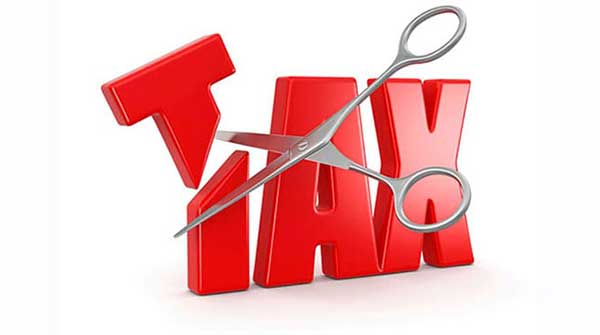 Nobody likes to pay taxes but Donald Trump’s tax-cutting obsession seems particularly foolish. After all, even within the existing U.S. tax regime, president-elect Trump, a billionaire, apparently hasn’t paid personal taxes for almost 20 years.
Nobody likes to pay taxes but Donald Trump’s tax-cutting obsession seems particularly foolish. After all, even within the existing U.S. tax regime, president-elect Trump, a billionaire, apparently hasn’t paid personal taxes for almost 20 years.
So what lies behind the seemingly irrational obsession?
Ever since colonial Americans threw tea into Boston Harbor to protest King George III’s stamp tax, the locals have been hostile toward taxes. Consider this from anti-tax advocates in Texas: “I can’t tell you how many people are truly shocked that a major state like Texas … doesn’t penalize its residents for the offence of earning money.”
For some Americans, income tax is a penalty imposed on the rich by a heartless state for the crime of working hard. There’s no comprehension of how tax revenues make it possible for people to succeed.
The official Republican Party position on taxes is less extreme but still filled with unreasonable assumptions. According to official documents, “The party believes that budgetary surpluses have caused Americans to be overtaxed.”
Surpluses?
They must referring to the surpluses of Bill Clinton’s Democratic administration in the 1990s.
Regrettably, those surpluses transformed rapidly into huge budgetary deficits during the administrations of George W. Bush (a Republican) and Barack Obama (Democrat) to pay for new tax cuts, various Middle Eastern wars and very expensive bailouts for banks.
Consider the Republican position on the use of taxes to redistribute wealth: “Republicans want to limit the top marginal rate, believing it punishes those who have worked hard and invested well.”
Clearly being rich is associated with virtue and hard work; presumably the less fortunate don’t work hard, aren’t virtuous and shouldn’t be supported by the public.
And that’s just the tip of the tax iceberg. Recent reports suggest the very rich in the U.S. (as well as Canada and other nations) have devised ways to avoid paying any tax.
At any given moment, trillions of dollars of potentially taxable money sits in offshore financial havens. This private ‘ocean money’ has avoided taxation and rests in stateless anonymity, beyond the reach of national taxation authorities. These resources are well protected in tax-friendly jurisdictions, of which there are many around the world.
How do the rich access this tax-free world?
It starts with social inequity.
Wage earners pay tax on their total gross earnings. Taxes automatically come off the top of their paycheques. On the other hand, corporations pay tax only on their profits. Profits are calculated after deducting all related costs from a company’s gross revenues.
Not surprisingly, rich and powerful everywhere surround themselves with corporate vehicles, professional corporations, holding companies, family trusts and related legal entities that shield their gross earnings, reducing their taxes.
It’s not fair but every country does it.
This reduces tax for many wealthy, connected people.
But the really rich employ specialists to help them take advantage of international tax havens to avoid paying any tax at all.
Many of the world’s super rich funnel untaxed money out of the country through corporate vehicles using Internet-based payment schemes, transfer pricing agreements and licensing strategies.
A significant amount of this money ends up in Cook Islands trusts.
The Cook Islands are a semi-autonomous state associated with New Zealand. Situated in the Pacific Ocean, the islands are thousands of kilometres from anywhere. A Cook Islands trust is particularly difficult for tax authorities to penetrate. The Cook Islands don’t recognize the jurisdiction of other courts, and routinely ignore court orders from countries like Canada, the U.S. or Britain. If money finds its way into one of these trusts, it disappears from view – it becomes ocean money.
Given how the advantaged already minimize or avoid taxes, Trump’s passion for tax cutting is hard to fathom. What’s the point?
Reducing tax revenues will hog-tie the Trump administration and further increase the indebtedness of the U.S. government. That will place a greater financial burden on the very people who put Trump in office, the wage-earning, taxpaying majority.
Robert McGarvey is an economic historian and former managing director of Merlin Consulting, a London, U.K.-based consulting firm. Robert’s most recent book is Futuromics: A Guide to Thriving in Capitalism’s Third Wave.
Robert is a Troy Media contributor. Why aren’t you?
The views, opinions and positions expressed by columnists and contributors are the author’s alone. They do not inherently or expressly reflect the views, opinions and/or positions of our publication.


